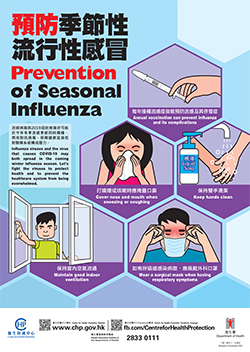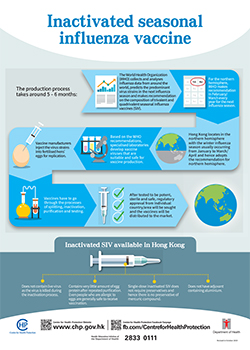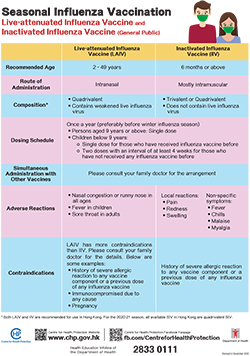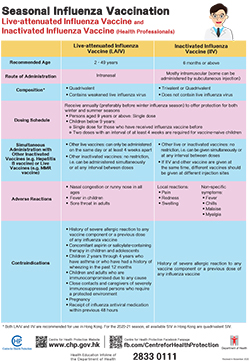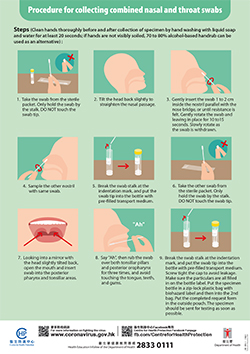Seasonal influenza is a common respiratory tract infection caused by human seasonal influenza viruses. It is totally different from avian influenza and influenza pandemic. In Hong Kong, seasonal influenza is usually more common in periods from January to March/April and from July to August.
In contrast, avian influenza (AI) is caused by those influenza viruses that mainly affect birds and poultry, such as chickens or ducks. These AI viruses are distinct from human seasonal influenza viruses. Since the AI viruses does not commonly infect human, there is little or no immune protection against them in the human population. People mainly become infected with AI through direct contact with infected birds and poultry (live or dead), their droppings or contaminated environments.
Influenza pandemic occurs roughly every 10 – 50 years and may strike anytime. It is caused by emergence and global spread of a novel influenza virus originated from an animal influenza virus (e.g. avian influenza virus) undergoing major genetic changes resulting in efficient human-to-human transmission. The human population has low or no immunity against the emerging pandemic influenza virus. Influenza pandemic is usually associated with a great number of cases, higher severity of illness, a higher death toll and consequently greater social and economic disruption.
For more details on seasonal influenza and its prevention, please refer to Seasonal Influenza.
For details on seasonal influenza vaccination, please refer to Vaccination Schemes and Vaccination for Seasonal Influenza.
For other languages [हिन्दी (Hindi), नेपाली (Nepali), اردو (Urdu), ไทย (Thai), Bahasa Indonesia and Tagalog], please click here
|
||||||||||||||||
